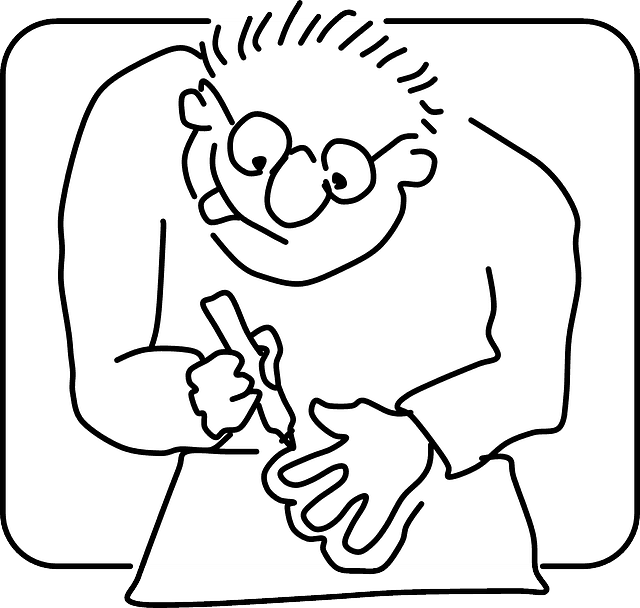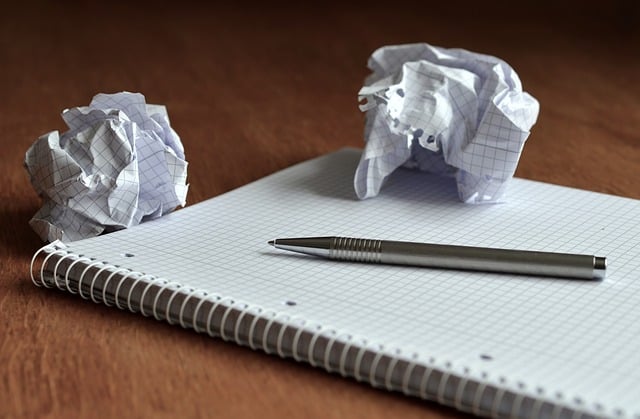In 2018, I decided to begin journalling.
New Year, new me… and that sort of stuff.
You see…
I’ve read The Miracle Morning, by Hal Elrod.
And I’ve listened to lots of successful business leaders who do journalling as part of their morning routine.
It seems to work for them.
So I wanted in.
Starting the Journalling Habit
“Christine, I’ve got a good idea for a Christmas present,” I shouted over to my wife, sometime during 2017.
“That’s good!” she said. “You’re so difficult to find anything to buy for. What is it?”
“One of those posh Moleskine books, please. I’m going to start a journal.”
Even though I was expecting it, it was still nice to open the perfectly wrapped Underwater-Blue Moleskine notebook on Christmas Day.

But then I had to practice a lot of patience…
Yup! It was still December – so I waited for 2018 to arrive, so that I could write in the thing!
In the meantime, I scribed my name carefully on the front page, together with a warning:
Private
Please Don’t Go Past Here
Hey! I didn’t want anyone reading my private thoughts!
Roll on 2018
1st January 2018: I’m writing in my new journal.
Err, no. I don’t think that’s what it’s about.
Good job I used a pencil…

Eventually, I got to work writing properly, and recorded in my “official journal” all the thoughts I’d been gathering about my goals and intentions for 2018.
In they went.
And in went the three words for 2018, which Chris Brogan had encouraged me to think through in his blog post.
A double page entry today. Not bad. Quite deep too.
Days 2, 3 and 4 were single page entries.
But the entries on days 5 and 6 shared a page.

Was I running out of things to write?
Or was I doing it wrong?
Not sure…
How much should you write, anyway?
And what sort of content are you really supposed to record in your journal?
I Need Help!
So I went back to The Miracle Morning for some guidance.
And, thanks to Google, I stumbled across Michael Hyatt’s article called “The 7 Benefits of Keeping a Daily Journal“.
Michael begins his article by telling us that journalling never worked for him.
“Ha! Great start. Thanks, Michael. I thought this was supposed to be an inspiring article!”
But as I read on, he explained how he began to become successful at journalling, and, most importantly, what made the difference.
Michael begins his day early.
5.30 am in his case.
And this is the sort of stuff he writes in his journal…
I might write about what I read in my Bible, a dream I had last night, an experience I had yesterday, or what I hope to accomplish today. Sometimes I will write on one topic; sometimes on four or five.
Yup. I get that.
But why? What’s the point of it?
Fair question eh?
Thankfully, Michael goes on…
What happens to us is not as important as the meaning we assign to it. Journaling helps sort this out.
I get that too.
But I’m still struggling with it.
Transferring the meaning of my thoughts onto paper is not something I’m used to doing.
Engineers don’t do that sort of thing. We work with facts and data.
But my wife spent a lot of money on my journal pressie…
So I’m certainly not going to give up at this stage.
It’s something I’m going have to get used to.
I’m going to give this meaning stuff a try.
Why Journal Early?
Since I began this journalling journey, I’ve noticed something quite interesting.
If I journal early in the morning, I can think through things and put them into writing relatively easily.
But if other things take priority, and I have to journal later in the day, it becomes much more difficult to transfer my thoughts to paper.
Keeping the Journal Private
Another thing I’ve noticed is this:
Even though I’ve written that “Private, please don’t go past here” notice on page 1, I’m still reluctant to record my personal thoughts on paper.
Is that a British thing? Is it me being over-cautious? How do you get around that problem?
Continuing the Journal
Anyhow, I intend to continue journalling throughout 2018.
How I journal, and what I write, might change over the year as I listen to seasoned journallers, experiment, and learn what works best for me.
Journalling is just one of the things I’ve decided to do to start each day throughout 2018.
As you may have read in my previous blog post, another of these is exercise.
Yet another is daily gratitude (finding three things to be grateful for every day and writing them down – I’ve done that for many years).
So far, I can say it’s working well.
It’s making a difference to each day.
And hopefully, it’s helping me be a better person. But I’ll have to let you be the judge of that.
Your Journalling Tips?
Does journalling work well for you?
What tips do you have?
I’d love to hear them. Please leave your tips… ideas… experience… in the comments box below…
Because I’m sure there are many more people than me who are starting to journal this year.
And we’re all keen to learn from you.
Here’s the Miracle Morning book I mentioned. Well worth a read.





Great to hear you’ve started journaling, David. It’s a practice I took up a few years ago and has served me very well.
I journal in the morning and evening. 3 things I’m grateful for, 3 things I’d like to achieve during the day, 3 amazing things that happened to me that day, and some thoughts on how I could have improved my day.
The bonus value in journaling is reviewing your journal entries. It reminds you of how much you’ve achieved and what you’ve enjoyed!
Good luck with your own journaling journey!
Thank you, Richard.
Sounds like you’re using the Five Minute Journal. I use the online version of that too, and I try to be consistent with that, no matter how much or how little I write in my new journalling book.
Thanks for the advice about reviewing the journal entries, too.
I love those Moleskin notebooks but I have a problem with writing in them. No fault of the notebook, more of a fault with me. I feel that by writing on them, they can no longer be used for anything else. The commitment has been made. The only solution is to have another pristine notebook at the ready to be used for something else.
Maybe I just have a problem with commitment. You’d have to ask my sixth wife.
No, not really. That’s a joke.
Thanks for your comment Robert. And for your kind message. Yeah, those kinds of books often seem too nice to start to write in. I have exactly the same problem.